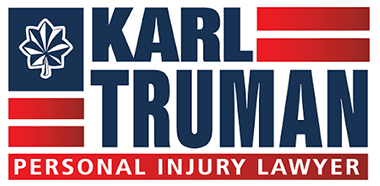Questions About a Workplace Injury?
Call an Experienced Work Injury Lawyer Today to Review Your Case and Explain Your Options for Seeking the Benefits You Deserve!

Workers’ compensation benefits are an important lifeline for injured workers. If you’re hurt in a workplace accident and can no longer perform your regular job duties, workers’ comp helps ensure you still earn a substantial portion of your pre-injury wages while you recover.
However, workers’ compensation can also be a source of anxiety and frustration—particularly for people considering a new job or even a new career. Many injured workers hesitate to seek a new position or new employment because they’re worried they might jeopardize their current benefits, or that a prospective employer will hold their workers’ comp history against them during the hiring process.
The good news is that, as long as you are honest about your physical capabilities and comply with all of your medical restrictions, you should be in the clear.
That said, it’s not unheard of for an insurance company to unfairly terminate benefits after an injured employee seeks or obtains work elsewhere, and switching jobs may not always be to your advantage in every situation. If you believe your benefits have been denied, reduced, or terminated unfairly, contact an experienced workers’ comp attorney as soon as possible for a free consultation.

It’s important to understand that the goal of workers’ compensation benefits is to cover your medical costs (including rehabilitation) and lost wages while you are unable to work your current job. Sometimes, workers suffer catastrophic injuries that permanently disable them, but this is not always the case.
Workers’ compensation laws are not meant to keep you from engaging in any kind of gainful future employment if your restrictions still allow you to pursue other types of work.
For example, it’s very common for employees in physically demanding occupations, like nursing or construction, to consider changing careers after a serious workplace injury. You might not be able to perform your old job, but you might be able to switch jobs and perform light duty work or office work without restriction, either with the same employer or a different one.
Vocational rehabilitation, which can include job retraining, is included as a benefit in both Kentucky and Indiana. And workers’ compensation laws are designed to protect injured workers from being retaliated against while encouraging them to focus on their recovery and pursue meaningful employment when they are able.
That said, the law can still be very complex, with very specific guidelines that need to be followed. Again, if you have any concerns about your workers’ comp case, speaking with an experienced attorney is strongly recommended.
RELATED: How Long Does It Take to Settle a Workers’ Comp Lawsuit?
Many job seekers worry that employers will treat a job applicant who previously filed a workers’ compensation claim as an injury risk and not hire them. But is that really true?
The frustrating answer is that it depends, although this should absolutely not discourage you from seeking a job interview.
Legally, employers are not allowed to ask you about previous injuries or prior workers’ comp claims during the interview process. They are only allowed to ask you whether you are physically capable of performing the responsibilities of the job—which you should, of course, always answer honestly.
However, even if your workers’ compensation history doesn’t come up in the interview, it may come up during a background check later in the hiring process. This is part of your legal history that can’t be erased.
Is it possible that an employer might secretly discriminate against you on that basis? Sadly, yes. However, in our experience, quality employers will not hold past injuries or claims against you, as long as you can demonstrate that you have the physical capabilities and qualifications to do the job.

Simply going through an interview process elsewhere should not jeopardize your wage benefits, even if your employer somehow catches wind of it—as long as your doctor’s restrictions still prevent you from working your current job, but not the job you’re applying for.
Furthermore, employers are not allowed to fire employees in retaliation for filing a workers’ compensation claim or receiving workers’ comp benefits. And even if your employer does fire you after finding out that you’re looking for work elsewhere, they still cannot terminate your benefits.

It is possible to change jobs (and switch employers) while still receiving workers’ compensation benefits. However, certain benefits may be reduced or terminated depending on the circumstances of your new employment.
Workers’ compensation claims include multiple components that may or may not be affected by changing jobs:
If you do accept a new job, you must contact your workers’ compensation insurance company before you begin work and inform them.
If you’ve been hurt on the job and want the best chance at securing all of the workers’ compensation benefits you’re entitled to—as quickly as possible, without unnecessary delays or denials—then be sure to request a free copy of our book today. In 10 Common Mistakes in Workers’ Compensation Claims for Indiana and Kentucky—and How to Avoid Making Them, Karl Truman provides a plain English overview of the workers’ compensation system and guides claimants through dealing with employers and the insurance companies. Get your free copy today!
Workers’ compensation law is complicated. The rules, restrictions, and exceptions vary from state to state. And the sad truth is that insurance companies frequently deny and challenge legitimate workers’ comp claims. They care more about their own profits than whether or not an injured worker can get the medical care they need or support their family.
If you’re unsure about how taking a new job might affect your benefits or believe your claim has been unfairly reduced or terminated, reach out to our Kentucky and Indiana workers’ compensation attorneys today for a free consultation.
The content provided here is for informational purposes only and should not be construed as legal advice on any subject.
















Disclaimer: Kentucky does not certify specialties in legal fields. The personal injury law information on this website provided by The Karl Truman Law Office is not meant to be taken as formal legal advice. If you need to speak with a personal injury attorney in the Louisville, Kentucky, or Jeffersonville, Indiana areas please contact us today.This website is not intended for viewing or usage by European Union citizens.
Terms & Conditions for SMS communication: Karl Truman Law Office will use SMS communications to contact those that have inquired about our services which include all practice areas listed on our site. Attempts to contact will cease after one month unless a case is accepted and signed with the Karl Truman Law Office, in which case we will continue to utilize our SMS feature for appropriate communications. Should there be any questions or concerns about our SMS communications, please call our office at 502.222.2222 or email us at [email protected]. You may opt out of these communications at any time by reply with STOP. Message and data rates may apply.
